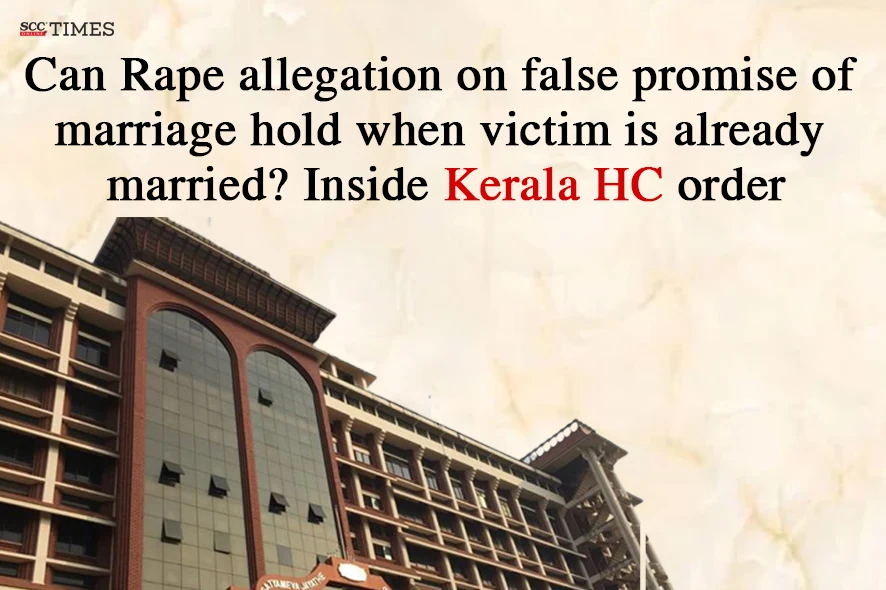Kerala High Court: In a bail application filed by the petitioner (‘accused’) fi under Section 482 of the Bharatiya Nagarik Suraksha Sanhita, 2023 (‘BNSS’), in a case where he was accused of offences under Sections 64(2)(m) and 69 of the Bharatiya Nyaya Sanhita, 2023 (‘BNS’) for sexually assaulting a woman on a false promise of marriage, a Single Judge Bench of Bechu Kurian Thomas, J., observing that the victim was in a subsisting marriage throughout the alleged period, which negated the claim of sexual intercourse based on a false promise of marriage, granted bail to the accused directing limited custody for interrogation.
Background:
The accused was a Sub-Inspector of Police, now serving in the Kerala Armed Police Battalion. The victim was married to another person and had three children. In 2016, she was alleged to have been with the accused, and pursuant to her husband’s complaint, she was produced before the police station, where she refused to return home and thereafter continued to live with the accused. Though the victim was allegedly separated from her husband, the marriage was not dissolved by law.
The investigation conducted so far revealed that the accused had allegedly married another lady in January 2025 and even after that, he continued living with the victim until July 2025. The prosecution alleged that the accused had sexually assaulted the victim from August 2016 till 24-07-2025, under the promise of marriage and even lived with the victim. The accused’s counsel submitted that he was falsely implicated and that he was not involved in the alleged crime.
Analysis and Decision:
Considering the facts of the case and the investigation so far, the Court observed that though the accusations were serious, since the victim was already in a subsisting marriage, the allegation of sexual intercourse based on a false promise of marriage could not legally exist, at least prima facie.
The Court relied on Sushila Aggarwal v. State (NCT of Delhi), (2020) 5 SCC 1, wherein it was held that while considering whether to grant anticipatory bail or not, Courts ought to be generally guided by considerations such as the nature and gravity of the offences, the role attributed to the applicant, and the facts of the case. The grant of anticipatory bail was a matter of discretion and the kind of conditions to be imposed or not to be imposed were all dependent on the facts of each case, and subject to the discretion of the Court.
The Court also referred to Ashok Kumar v. State (UT of Chandigarh), 2024 SCC OnLine SC 274, where it was observed that a mere assertion on the State’s part while opposing the plea for anticipatory bail that custodial interrogation was required, would not be sufficient and that the State would have to show or indicate more than prima facie case as to why custodial investigation of the accused was required for the purpose of investigation.
The Court noted that the prosecution could not convince the Court that the custodial interrogation of the accused was necessary but opined that he must subject himself to interrogation for the purpose of completing the investigation under a limited custody, as observed in Sushila Agarwal (supra).
Consequently, the Court, while allowing the application, ordered the accused to appear before the Investigating Officer (‘IO’) as and when required. The Court further directed that if after the interrogation, the IO proposed to arrest the accused, then, he must be released on bail after executing a bond for Rs 50,000 with two solvent sureties each for the like sum.
[Mahesh V.M. v. State of Kerala, 2025 SCC OnLine Ker 6696, decided on 25-08-2025]
Advocates who appeared in this case:
For the Accused: Muhammed Zain Shabeer P.P., Shibu Babu, Advocates.
For the Respondents: Prasanth M.P., PP.


